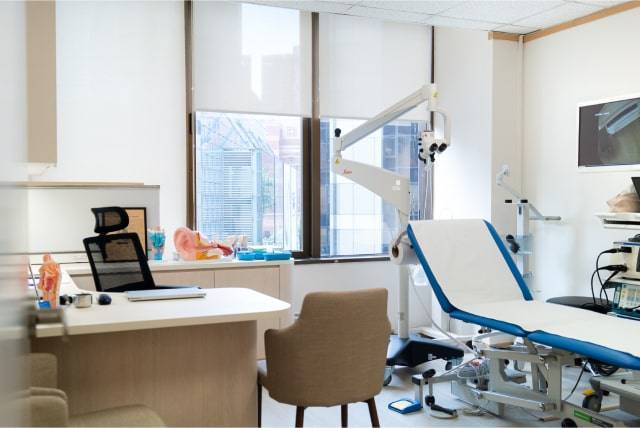
Tinnitus, also known as “ringing in the ears,” is a condition characterised by the perception of noise or ringing, buzzing, hissing, or clicking sounds in the ears when no external sound is present. It can affect one or both ears and may vary in pitch, frequency, and duration. Tinnitus is a symptom rather than a disease itself and can result from a variety of underlying causes. It ranges from being a mild nuisance to a debilitating experience for those affected. This article explores the causes, types, symptoms, diagnosis, treatment, and management strategies for tinnitus, aiming to provide a comprehensive overview of this complex condition.
Understanding Tinnitus: Cause and Symptoms
Tinnitus is not a singular condition but a symptom of an underlying health issue. It is one of the most common health conditions, affecting approximately 10% to 15% of the adult population worldwide. While it is more prevalent among older adults, tinnitus can affect individuals of any age, including children.
Symptoms and Causes of Tinnitus
Recognising Tinnitus Symptoms
Tinnitus presents as a range of sounds perceived by individuals without any external source. These sounds can vary widely:
- Ringing: Often described as a high-pitched, bell-like tone, this is one of the most common forms of tinnitus.
- Buzzing: This may sound like a low, constant hum, similar to the noise of electrical appliances.
- Hissing: A sound akin to steam or white noise, sometimes fluctuating in intensity.
- Clicking: Rhythmic noises that may feel like they’re in sync with your heartbeat or jaw movement.
The intensity of tinnitus can greatly vary. For some, it might be a mild background noise, while for others, it can be so loud that it disrupts concentration, sleep, and overall hearing. Persistent tinnitus can lead to significant stress, anxiety, and difficulty in focusing on daily tasks, as the constant noise interferes with mental clarity and rest.
Common Causes of Tinnitus
- Exposure to Loud Noises: One of the most prevalent causes of tinnitus is prolonged exposure to loud sounds, whether at work, during concerts, or through personal audio devices. These noises can damage the hair cells in the cochlea of the inner ear, leading to persistent tinnitus even after the exposure ends.
- Ear Infections and Earwax Buildup: ENT-related issues such as ear infections, excessive earwax, or blockages in the ear canal can cause or exacerbate tinnitus. When the ear canal is obstructed, normal hearing is disrupted, leading to the perception of internal sounds.
- Age-Related Hearing Loss: As people age, the natural degeneration of cells in the inner ear can lead to hearing loss, which is often accompanied by tinnitus. This type of tinnitus is usually associated with a high-pitched ringing or buzzing sound.
- Medical Conditions Linked to Tinnitus: Tinnitus can also be a symptom of various medical conditions. For instance, hypertension (high blood pressure) can affect blood flow to the ears, leading to a pulsating type of tinnitus. Similarly, TMJ (temporomandibular joint) disorders, which affect the jaw, can also lead to tinnitus due to the proximity of the jaw joint to the ear. Certain medications, such as ototoxic drugs, can also trigger or worsen tinnitus symptoms.
Understanding the symptoms and causes of tinnitus is essential for managing this condition effectively and improving one’s quality of life. By identifying the underlying causes and recognising the symptoms, individuals can seek appropriate treatment and take steps to mitigate the impact of tinnitus on their daily lives.
Diagnosis of Tinnitus Treatment Options

Diagnosing tinnitus involves a thorough medical history and a physical examination. Our ear, nose, and throat (ENT) specialist may also perform several tests, including:
- Hearing Tests (Audiograms): These tests assess the individual’s hearing range and sensitivity.
- Movement Tests: The patient may be asked to clench their jaw, move their eyes, or perform other simple tasks to see if the tinnitus changes, which can help identify the underlying cause.
- Imaging Tests: CT scans or MRIs may be used to check for structural issues in the ear and brain.
Treatment and Management
There is no one-size-fits-all treatment for tinnitus, and the effectiveness of treatment can vary according to individuals. Treatment strategies aim to manage the condition and improve the individual’s quality of life:
- Hearing Aids: For patients with hearing loss, hearing aids have the potential to amplify external sounds, making tinnitus less noticeable.
- Sound Therapy: Using external sounds to partially or completely mask the tinnitus can provide relief. This can include white noise machines, specialised ear masks, or hearing aids with a tinnitus-masking feature.
- Medications: While no medication directly treats tinnitus, some can help manage the stress, anxiety, and depression that often accompany the condition.
- Tinnitus Retraining Therapy (TRT): This therapy combines sound therapy with directive counselling to retrain the brain to perceive the tinnitus sounds as less bothersome, helping to minimise the impact of tinnitus on daily life. TRT aims to achieve habituation to tinnitus, where the patient learns to gradually pay less attention to the tinnitus sound, thereby reducing its impact.
In most cases, tinnitus does not require surgery as it is often managed through non-surgical treatments. However, surgery may be considered as a treatment option in rare cases where tinnitus is caused by underlying conditions such as vascular abnormalities, tumours, or anatomical issues that cannot be addressed with conservative methods.
Conclusion
Tinnitus is a complex condition with a wide range of causes and manifestations, making it a uniquely personal experience for each individual. While there is currently no cure for tinnitus, a combination of treatments and coping strategies can significantly reduce its impact on quality of life. Understanding the condition, seeking help from an experienced ENT specialist, and actively managing symptoms can empower those affected by tinnitus to lead fulfilling lives despite the challenges it presents.
Frequently Asked Questions
When should you see an ENT specialist in Singapore?
Please consult an ENT specialist if you are suffering from any ear, nose, or throat symptoms. It is also advisable to visit an ENT doctor if you experience persistent mouth breathing due to a chronic blocked nose or encounter snoring issues.
Dr Ker Liang sees adults and children for general ENT conditions and provides comprehensive management in a broad range of Ear, Nose, and Throat, as well as Head and Neck conditions. In particular, she has a special interest in treating throat and voice conditions, including persistent sore throat, voice issues, snoring, and Obstructive Sleep Apnoea (OSA).
Can an ENT specialist help with tinnitus?
Yes, an ENT (Ear, Nose, and Throat) specialist can help diagnose and manage tinnitus. They will assess your ear health, investigate possible causes, and recommend treatments, which may include medication, hearing aids, or sound therapy.
How to treat tinnitus in Singapore?
In Singapore, tinnitus can be treated through various methods, including sound therapy, cognitive-behavioural therapy (CBT), hearing aids, and medication. ENT specialists and audiologists provide personalised treatment plans based on the severity and underlying causes of your tinnitus.
How to tell if tinnitus is getting better?
Improvement in tinnitus can be recognised by a reduction in the intensity or frequency of the noise, better sleep, and improved ability to focus or concentrate. If you notice these changes, your tinnitus may be getting better.
What are the red flags for tinnitus?
Red flags include sudden or severe tinnitus, tinnitus in only one ear, hearing loss, dizziness, or ear pain. These symptoms may indicate a more serious condition and should be evaluated by a medical professional immediately.
Will tinnitus go away by itself?
In some cases, tinnitus may go away on its own, especially if it’s caused by temporary factors like exposure to loud noise or ear infections. However, persistent tinnitus may require medical intervention for relief.
What is the real root of tinnitus?
The root cause of tinnitus varies but often includes damage to the inner ear, auditory nerve issues, or underlying health conditions such as hypertension or TMJ disorders. Identifying the specific cause is key to effective treatment.
What happens if tinnitus goes untreated?
If untreated, tinnitus can lead to significant distress, including sleep disturbances, anxiety, depression, and difficulties in concentration. It can also exacerbate underlying conditions, so it’s important to seek medical advice.
Should I see an ENT or neurologist for tinnitus?
Start with an ENT specialist, as they can address most tinnitus-related issues. If your tinnitus is linked to neurological symptoms or conditions, the ENT may refer you to a neurologist for further evaluation.
Why has my tinnitus suddenly got louder?
A sudden increase in tinnitus loudness can be triggered by factors like stress, exposure to loud noise, ear infections, or changes in medication. It’s important to consult a doctor to determine the cause and adjust your treatment accordingly.
Assistant Professor Ker Liang has a passion for teaching and is an Assistant Professor with NUS Yong Loo Lin School of Medicine (YLLSOM). As the NUS-NUH Otolaryngology Department Undergraduate Medical Director, Dr Ker Liang supervises the training of medical students from YLLSOM, NUS. She is actively involved
in the training of postgraduate junior doctors and residents in the Head and Neck Surgery department. She was conferred with an Undergraduate Teaching Award by the National University Health System in 2016 for her outstanding efforts as an Otolaryngology educator.
Assistant Professor Ker Liang has a passion for teaching and is an Assistant Professor with NUS Yong Loo Lin School of Medicine (YLLSOM). As the NUS-NUH Otolaryngology Department Undergraduate Medical Director, Dr Ker Liang supervises the training of medical students from YLLSOM, NUS. She is actively involved
in the training of postgraduate junior doctors and residents in the Head and Neck Surgery department. She was conferred with an Undergraduate Teaching Award by the National University Health System in 2016 for her outstanding efforts as an Otolaryngology educator.
Lorem ipsum dolor sit amet, consectetur adipiscing
Lorem ipsum dolor sit amet, consectetur adipiscing elit. Ut elit tellus, luctus nec ullamcorper mattis, pulvinar dapibus leo. Lorem ipsum dolor sit amet, consectetur adipiscing elit. Ut elit tellus, luctus nec ullamcorper mattis, pulvinar dapibus leo.
Lorem ipsum dolor sit amet, consectetur adipiscing
Lorem ipsum dolor sit amet, consectetur adipiscing elit. Ut elit tellus, luctus nec ullamcorper mattis, pulvinar dapibus leo. Lorem ipsum dolor sit amet, consectetur adipiscing elit. Ut elit tellus, luctus nec ullamcorper mattis, pulvinar dapibus leo.
Lorem ipsum dolor sit amet, consectetur adipiscing
Lorem ipsum dolor sit amet, consectetur adipiscing elit. Ut elit tellus, luctus nec ullamcorper mattis, pulvinar dapibus leo. Lorem ipsum dolor sit amet, consectetur adipiscing elit. Ut elit tellus, luctus nec ullamcorper mattis, pulvinar dapibus leo.
Lorem ipsum dolor sit amet, consectetur adipiscing
Lorem ipsum dolor sit amet, consectetur adipiscing elit. Ut elit tellus, luctus nec ullamcorper mattis, pulvinar dapibus leo. Lorem ipsum dolor sit amet, consectetur adipiscing elit. Ut elit tellus, luctus nec ullamcorper mattis, pulvinar dapibus leo.
Lorem ipsum dolor sit amet, consectetur adipiscing
Lorem ipsum dolor sit amet, consectetur adipiscing elit. Ut elit tellus, luctus nec ullamcorper mattis, pulvinar dapibus leo. Lorem ipsum dolor sit amet, consectetur adipiscing elit. Ut elit tellus, luctus nec ullamcorper mattis, pulvinar dapibus leo.



